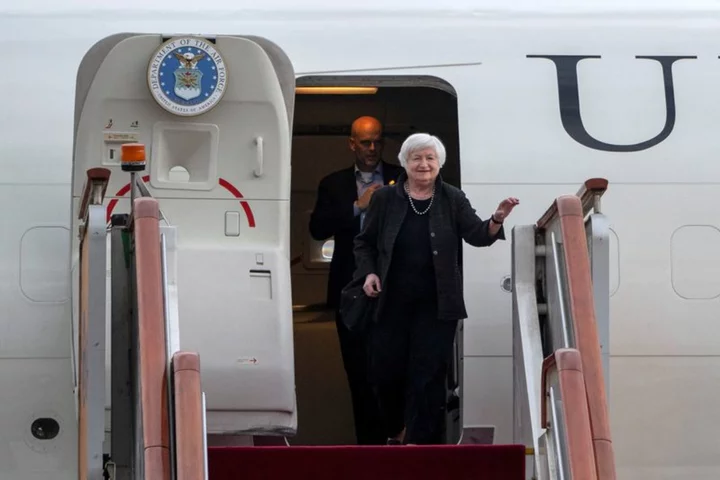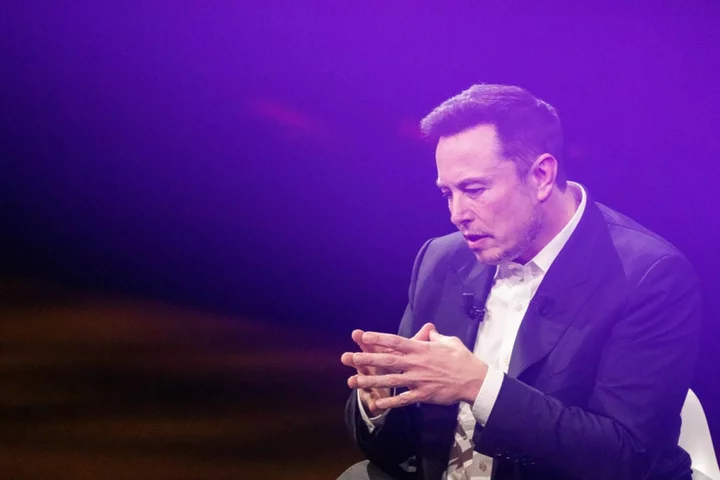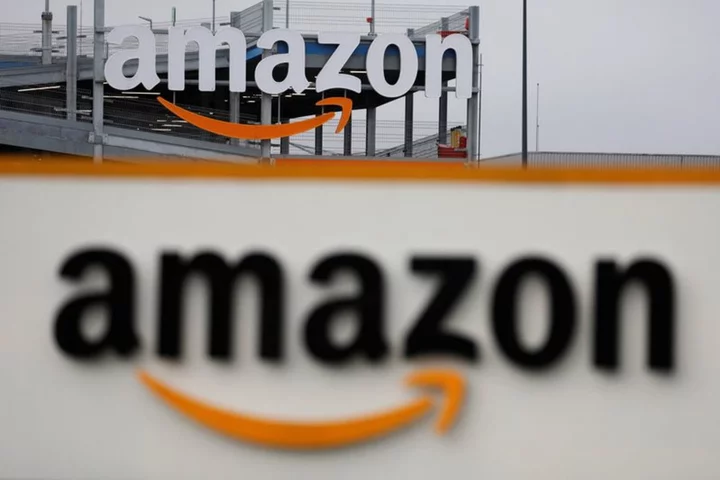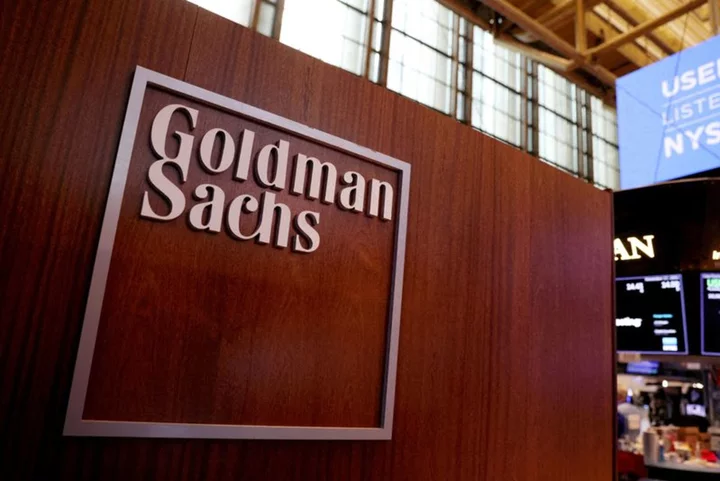By David Lawder and Joe Cash
WASHINGTON/BEIJING As U.S. Treasury Secretary Janet Yellen tries to steady an increasingly tense relationship with China, the world's two largest economies remain tightly linked, but are showing some signs of future weakness.
Yellen starts meetings on Friday with senior Chinese officials pledging to seek "healthy competition" with China as confrontation between the economic powers over U.S. technology export controls and planned outbound investment restrictions dominate headlines.
Despite talk of U.S.-China economic de-coupling, recent data show a trade relationship that is fundamentally solid, and rebounded in 2022 from five years of turmoil wrought by a trade war and COVID-19 disruptions.
Two-way trade hit a record $690 billion last year as U.S. demand for Chinese consumer goods rose and Beijing's demand for U.S. farm products and energy grew. U.S.-China trade had fallen after 2018, when former President Donald Trump imposed tariffs of up to 25% on some $370 billion in Chinese imports, but began to rebound during the COVID recovery of 2021.
"I think it is important that people realize that business and politics are separate," said Michael Hart, president of the American Chamber of Commerce in China. "The current state of U.S.-China trade and investment is the result of 30 to 40 years' worth of ongoing trade and investment."
This year is off to a significantly slower pace, however, with the two-way trade flows though May down $52 billion, or 18%, from the first five months of 2022, according to U.S. Census Bureau data.
The decline is due to a 24% reduction in Chinese exports to the U.S., while U.S. exports to China rose 3.5% through May.
William Reinsch, a trade expert at the Center for Strategic and International Studies in Washington, said the decline may be partly due to slumping goods demand after America's COVID-era shopping binge, but added that supply chain diversification away from China may also be a factor.
But U.S. businesses know that China's growing middle class will soon be the world's largest, said Wang Huiyao, president of the Center for China and Globalization, a Beijing-based think tank. Their spending power will keep China "one of the fastest-growing markets in the world," he said.
FEW AIRCRAFT, MORE BATTERIES
Trade between China and the United States has shown some significant shifts in the past several years, with China shunning aircraft and machinery purchases while increasing imports of farm goods, energy, semiconductors and chip manufacturing equipment.
The latter are particularly vulnerable to U.S. export restrictions, a topic expected to be discussed in Yellen's meetings in Beijing. A last-minute complication to her visit is China's retaliatory move to impose export curbs on gallium and germanium, metals widely used in semiconductors and electric vehicles, threatening new supply chain disruptions.
U.S. officials still complain that China failed to meet its commitments to massively increase purchases of U.S. farm and manufactured goods, including aircraft, under Trump's 2020 "Phase 1" trade deal signed just before the pandemic shuttered the global economy.
The U.S. depends on China for smartphones, computers, video game consoles and other electronics products where China enjoys unrivalled economies of scale. A fast-rising import category is lithium-ion batteries, which have more than doubled in value during each of the past two years as U.S. EV production ramps up.
U.S. tax subsidies aimed at building up domestic battery manufacturing capabilities and reducing dependence on Chinese batteries could slow that in the future.
FDI DROPS INTO U.S., NOT CHINA
Flows of foreign direct investment from China into the United States have fallen off in recent years amid increased scrutiny of U.S. acquisitions by Chinese companies.
And recent surveys have shown that U.S. businesses operating in China are increasingly pessimistic about prospects there, with many awaiting an expected Biden administration executive order curbing outbound U.S. investment into China.
But these factors have yet to manifest in China-bound U.S. investment, according to Chinese data.
Even in the halls of the U.S. Congress, where anti-China sentiment runs high, there is a recognition that China is a major market for U.S. exports, said Hart from the American Chamber of Commerce in China.
"One of the things when we were in D.C. that we were saying to everybody who would listen is: 'We want, number one, to keep the commercial lanes open. It's important to keep trade going, too,'" Hart said.
(Reporting by David Lawder in Washington and Joe Cash in Beijing; Editing by Heather Timmons and Jamie Freed)









